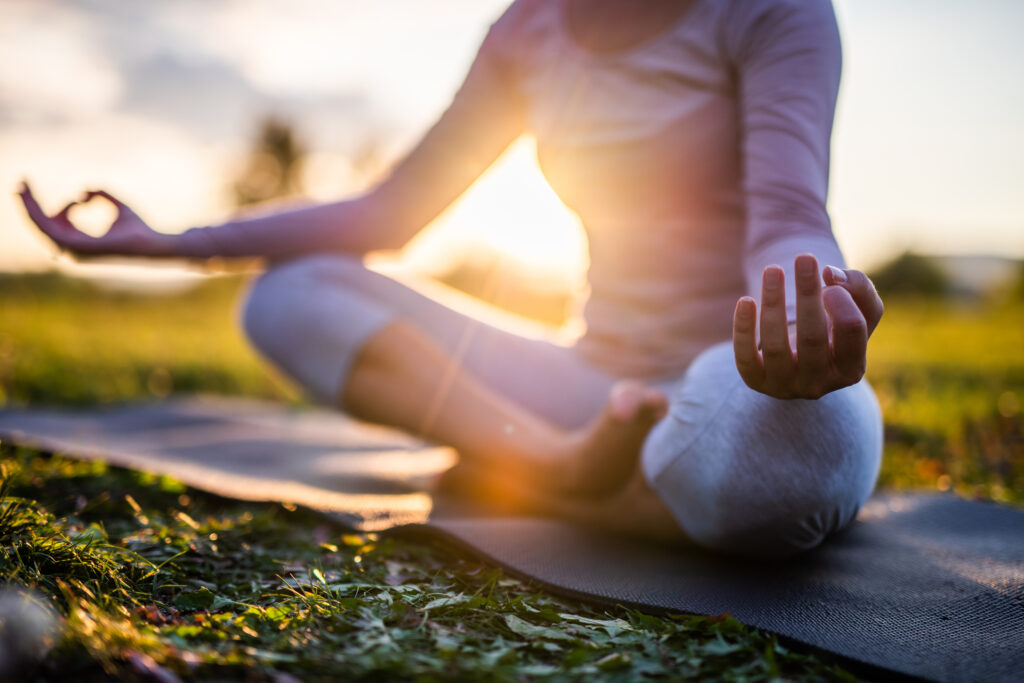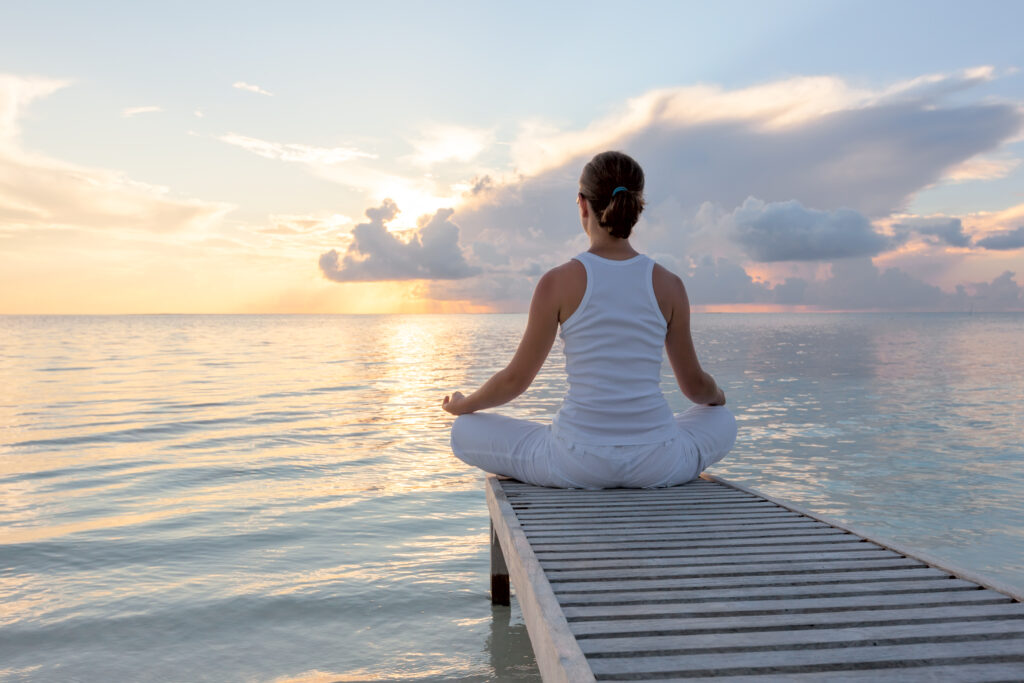Physical symptoms such as headaches, tension in the neck and shoulders, dizziness, fatigue and poor sleep can all be a result of stress overload. Stress can affect our mental state too as it elevates levels of cortisol; a hormone that affects the function of the brain. This can result in worrying, poor concentration, difficulty in making decisions and uncontrollable thoughts. And to add to the list, emotional symptoms can present as irritability, feelings of being overwhelmed, anxiety, low self-esteem and depression. A person in a high state of stress can cause aggressive or defensive behaviour, avoiding situations, poor communication, drinking too much alcohol and smoking. It can exacerbate mood disorders too.
Practicing ‘relaxation’ is paramount to managing stress. When we relax, the flow of blood increases around our body giving us more energy. It helps us to have a calmer and clearer mind which aids positive thinking, concentration, memory and decision making. Relaxation slows our heart rate, reduces our blood pressure and relieves tension. It also aids digestion as we absorb essential nutrients more efficiently when relaxed, which helps to fight off disease and infection.

Lower Your Blood Pressure
According to the Centers for Disease Control and Prevention, almost one-third of American adults have hypertension. Although your blood pressure ebbs and flows throughout the day, it can be problematic if it stays high for an extended period of time.
When the blood exerts more pressure than is necessary against the artery walls, it can damage them. High blood pressure also increases the risk of heart disease and stroke.
Increase Blood Flow
While relaxation reduces blood pressure, it improves blood flow. Studies show that short-term meditation is correlated with a boost in blood circulation in the brain. It also improves focus and self-control.
When your body is in good condition, your circulatory system works effectively, bringing adequate blood flow to your major organs with minimal effort. Your heart moves more blood with each pump and doesn’t have to work so hard.
Calm the Mind
Have you ever noticed how many thoughts go through your mind at a given moment? Stop reading right now and close your eyes. Take a few deep breaths. Continue breathing for a few minutes. If you notice that your brain is swarming with information and judgment, you could probably use a relaxation session.
Because the mind and body are connected, you can relieve tension in one by relaxing the other. For example, gentle stretching exercises combined with breathing are great for loosening up the body. This type of physical relaxation can also reduce anxiety and mental strain.

Improve Digestion
Giving yourself time to relax can improve your digestion in several ways. When you’re busy, you might not take the time to eat nutritious meals. Slowing down lets you nourish yourself.
Relaxation techniques are also used to manage gastrointestinal issues. When you’re calm, your autonomic nervous system is relaxed too. This is the system that controls the bodily functions that you don’t have to think about, such as your digestion and heart rate.
The sympathetic and parasympathetic nervous systems are part of the autonomic nervous system. The sympathetic nervous system is activated when you’re tense or stressed out. This is the system that redirects blood flow away from your digestive system so that you can fight or flee.
Relieve Aches and Pains
As people age, they tend to experience more aches and pains than they did when they were younger. In fact, about 20 percent of adults in the U.S. suffer from chronic pain. Relaxation can work alone or in conjunction with medication to help them regain mobility and reduce discomfort.
When you take time to put your feet up, your muscles loosen. This is due in part to the fact that you tend to hold your body still while you relax. If you’re constantly in motion, your muscles tone is consistently high. This can result in tightness, knots and aches.
Relieve Aches and Pains
As people age, they tend to experience more aches and pains than they did when they were younger. In fact, about 20 percent of adults in the U.S. suffer from chronic pain. Relaxation can work alone or in conjunction with medication to help them regain mobility and reduce discomfort.
When you take time to put your feet up, your muscles loosen. This is due in part to the fact that you tend to hold your body still while you relax. If you’re constantly in motion, your muscles tone is consistently high. This can result in tightness, knots and aches.
Progressive muscle relaxation is one way to unwind your muscles. To do this, tighten your muscles while you inhale. As you exhale, relax your body. Work through different groups of muscles until your entire body is relaxed.
The Bottom Line
Unfortunately, many people see leisure time as something to sacrifice in exchange for productivity. When they’ve reached a breaking point, they take a vacation or flop onto the couch because they need some relief. But relaxation should be part of a holistic approach to wellness. When you make time for yourself, you hit the reset button and allow your body to come into balance. If you’re working to maintain or improve your health, don’t neglect the power of relaxation.

Sources: Sioux Center Health Website and Well Bein People Website
You can get your relaxation moment in Foz Do Iguaçu! Visit Brazil, visit Foz do Iguaçu!
